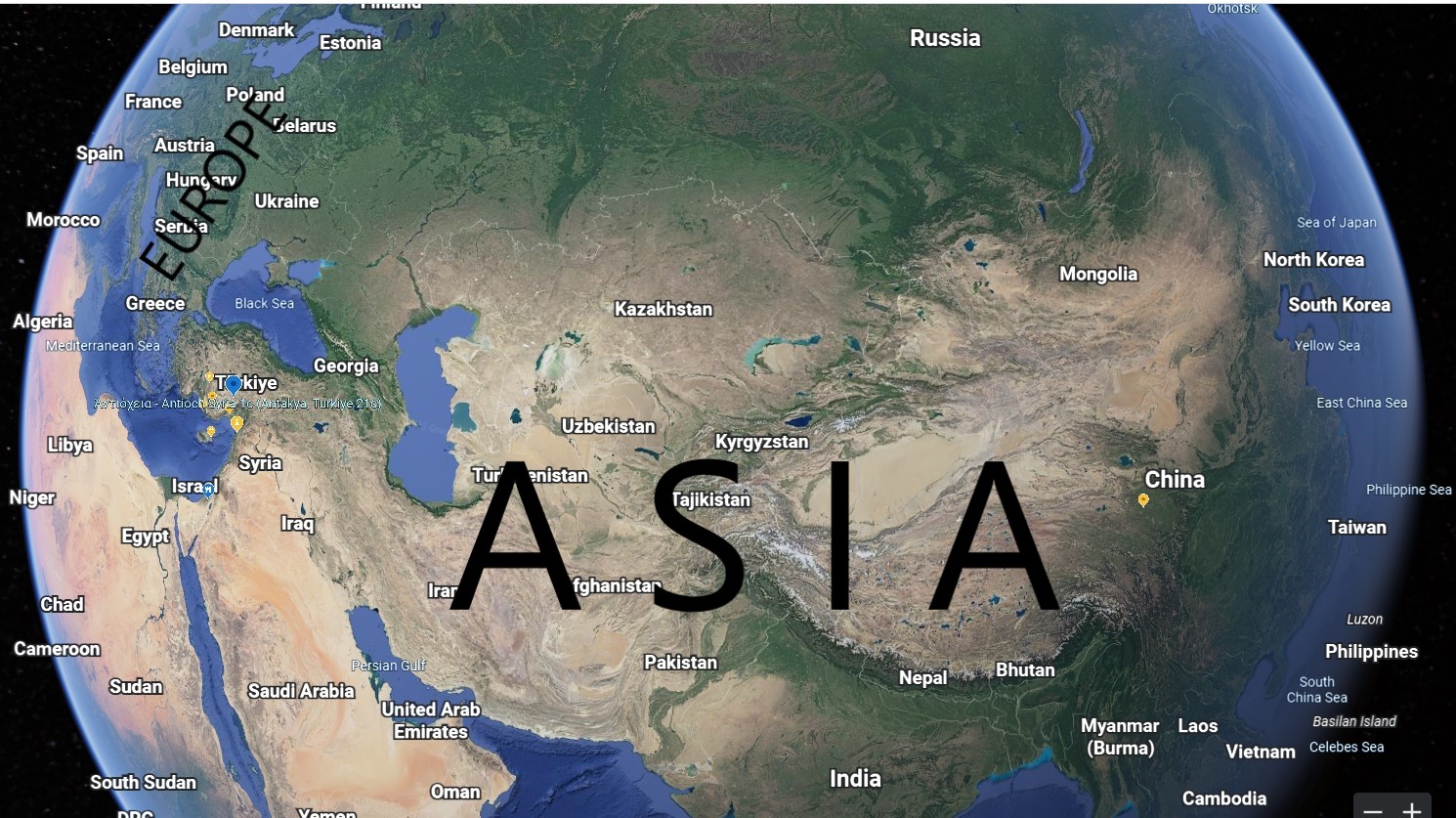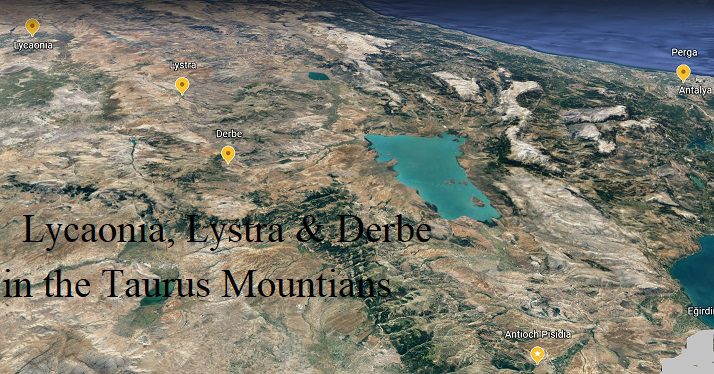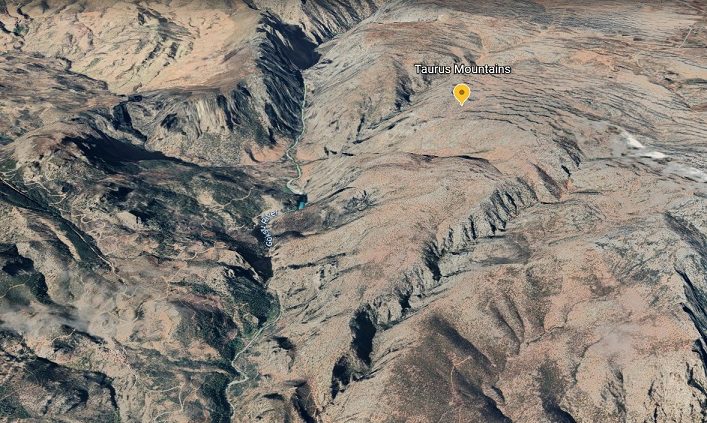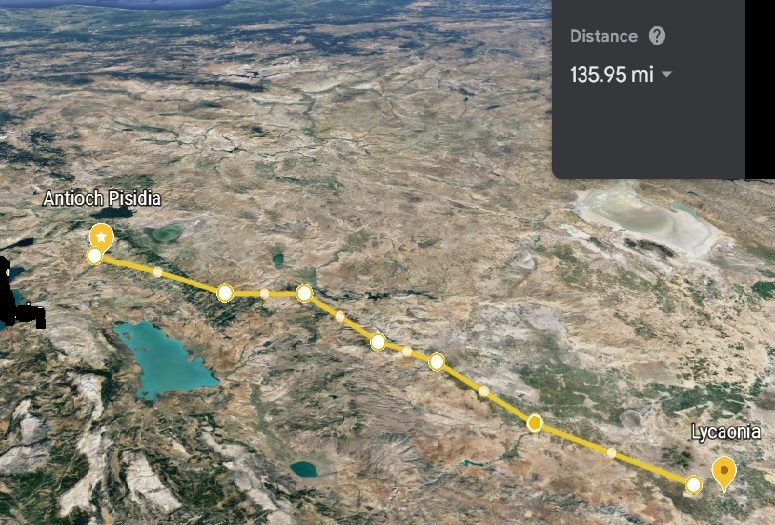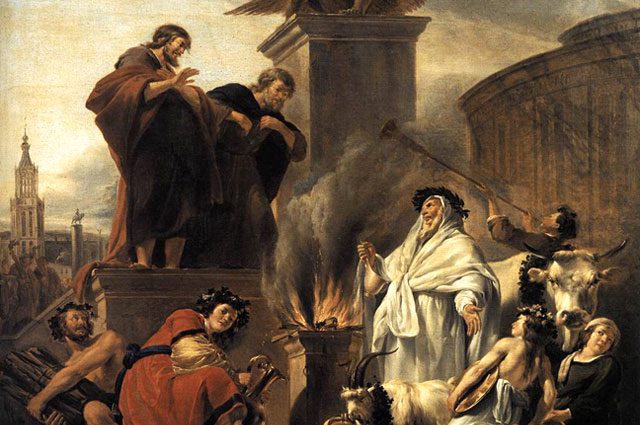The importance of this juncture in Paul’s journey, now with Silas and Timothy, cannot be overemphasized as these apostles are sent out beyond Asia into all the world of Euro-Asia.
Asia – the BIG picture
Growing up geographically-challenged (as my 5th grade teacher surely would have confirmed) in a small village far distant from Paul’s missionary journeys I was CLUELESS when I read Luke’s lists of places in Acts.
Where were these cities? (Or were they states? Perhaps a province of some kind?)
And ASIA? (That’s confusing.)
Continents as I remembered (5? or 7?):
- North America (That’s US.)
- South America (Go toward Texas & keep going.)
- Europe (Cross the Atlantic like Europeans did & founded 13 colonies in America)
- Africa (everything south of the Mediterranean Sea, Egypt and all those jungle places south where Europeans brought slaves to America.)
- Antarctica (it’s all ice and nobody lives there.. Is it the one on the South Pole or north?)
- Asia (Russia, from where Europe ends west to the Pacific & India, China, Japan along the Pacific
- Australia (How can an English island below Asia be called a continent?)
C -
Go into all the world GEOGRAPHY (remedial)
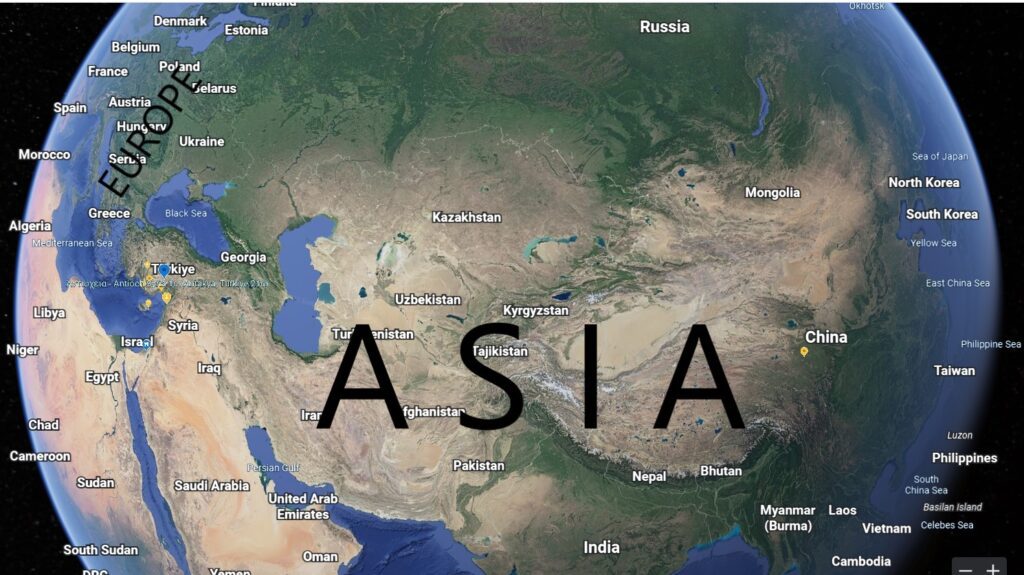
Join me as I refresh some of my quite limited knowledge of geography - especially of Asia.
Asia facts from WorldGeography.com
- Asia is the largest and most populated continent
- It shares land borders with Europe, which is not defined and hence share a landmass called Eurasia.
- Afro-Eurasia is the name given to the landmass between Asia, Europe, and Africa.
- Asia shares a lot of its extreme points with Europe, especially Russia.
Cape Dezhnev, 66°4′45″N 169°39′7″W, located on the Chukchi Peninsular, between the Chukchi Sea and the Bering Strait [W. of Alaska] , is the easternmost point of mainland Asia.
Pamana Island, 11°00′36″S 122°52′37″E, is the southernmost point of Asia, located in the Lesser Sunda Islands, East Nusa Tenggara province of Indonesia.
The northernmost point on the Asian mainland is Cape Chelyuskin, 77°44′0″N 104°15′0″E. At 1370km from the North Pole, ..located at the Taymyr Peninsula,
Westernmost Point In Asia
- Cape Baba, 39°28′47″N 26°03′50″E, located on the Anatolian part of Turkey, is the westernmost part of Asia. Located in Babakale village also known as Father’s Castle in historical Troad. Apostles Luke’s journey around the cape, and Apostle Paul’s journey on land are recorded in the biblical book Acts of the Apostles.
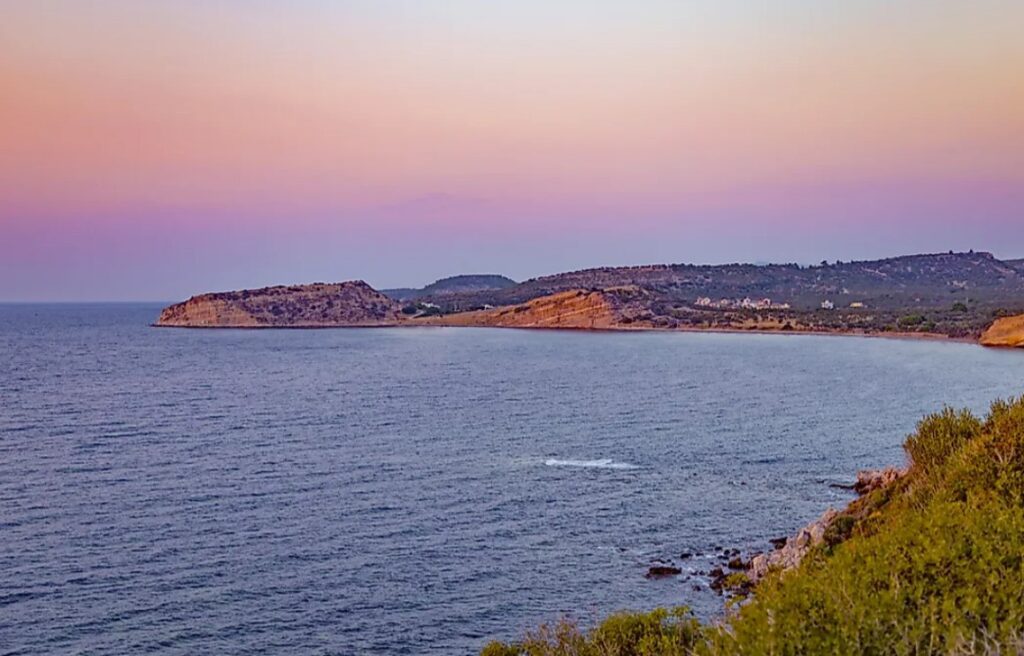
Asia Minor, Roman Remnant of a former Empire
Zoom in with Roman military eyes toward a vast empire to the east situated on the westernmost shores of Asia, fixing your eyes on adjacent Aegean shores of 21st c. Turkiye.
This geographical-historical view of the Asia minor region is provided only for its context of culture as it intersects with Paul's missionary journeys 'into all the world' of Eurasia.
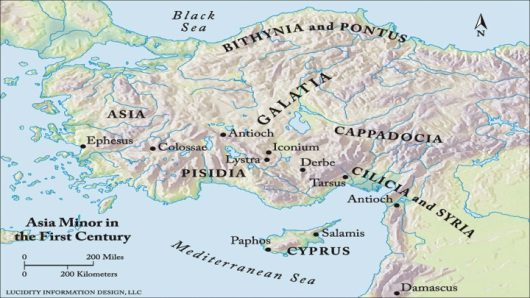
Follow the southern coastline from nearest to Rome toward the east and riches of former empires.
Rome’s region of ASIA MINOR
- conquered via the vast Mediterranean and inland to the Taurus mountains includes [W. to E.]:
- Pisidia [N. of Perga],
- Pamphylia [along a coast N. of Cypress],
- Cilicia [with its port city of Tarsus] and finally
- Syria (at times including Judea).
- Further Roman conquests inland to the north included:
a large Roman province of GALATIA
- N from Iconium and on its Western edge Antioch Pisidia, all of the central plain to the borders of
- a more remote Cappadocia in the mountains to the north of Cilicia and Tarsus and Antioch Syria,
- N to Bithynia and Pontus on the Black Sea and again toward
- Phrygia along the mountainous borders with Asia Minor toward Mysia and the strategically situated Sea of Marmara between the narrow isthmus connecting the Black and Aegean Seas.
In Roman times, however, when Paul journeyed there, the country was divided into two parts, one of which was known as Galatian Phrygia, and
the other as Asian Phrygia, because it was a part of the Roman province of Asia, but the line between them was never sharply drawn.
Source: BibleAtlas.org
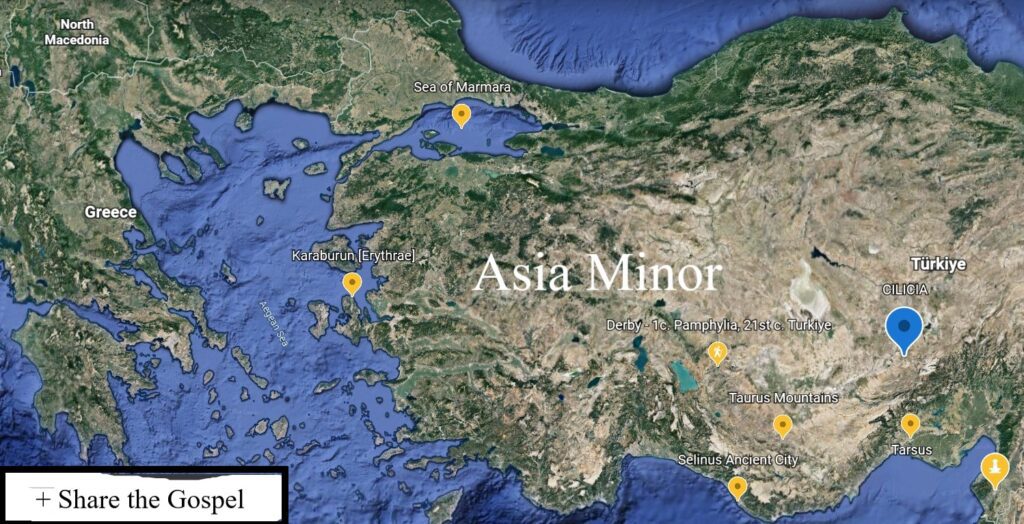
– ACTS 16:6
The Empires Before Christ
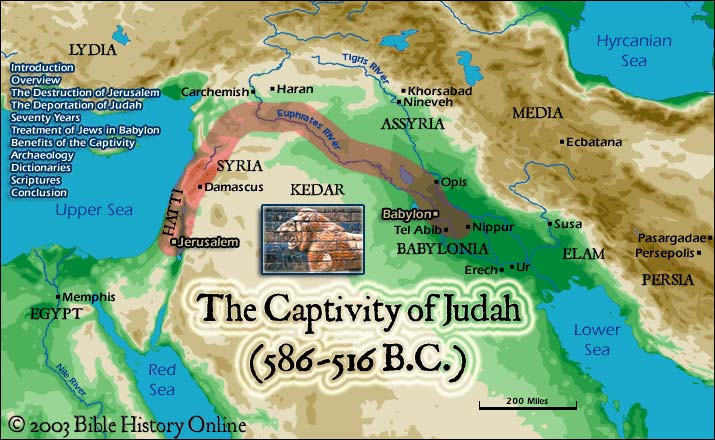
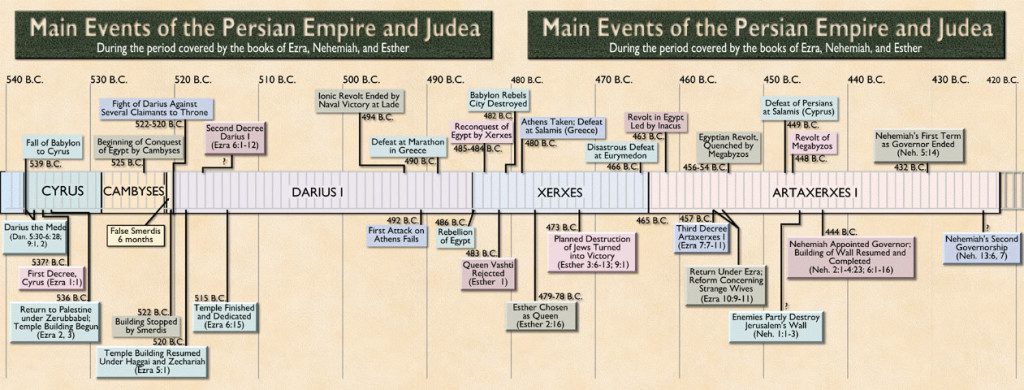
Paul, Silas and Timothy will know these events well from Scripture, but those are no longer the Empires of concern to either the Jews or Rome. In a more recent history of Judea and Eurasia one vast Empire rivals all others.
356 BC – Macedonia
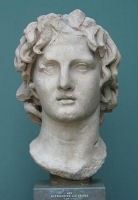
Alexander the Great
- Tutored by Aristotle
- trained for battle by his father, Philip II
- source: History.com
Roman bust, 2nd century AD / Creative Commons license
[Alexander’s] undermanned defeat of the Persian King Darius III at the Battle of Gaugamela is seen as one of the decisive turning points of human history, unseating the Persians as the greatest power in the ancient world and spreading Hellenistic culture across a vast new empire.
https://www.history.com/news/alexander-the-great-defeat-persian-empire
332 BC – Tyre: a siege of Hellenism close to home
The siege of Tyre was orchestrated by Alexander the Great in 332 BC during his campaigns against the Persians.
source: Wikipedia
The reign of Alexander the Great was short-lived. After subduing all of the Persian Empire, his army marched east and got as far as India before turning back home to Macedon. But he never made it home.
At just 32 years old, Alexander died in Persia in the palace of Nebuchadnezzar II in Babylon.

323 BC – 30BC – a Greek-ish Eurasia
Click the link below to see a map of the Hellenized 'Greek-ish' world after Alexander the Great where the Apostle Paul now witnesses Christ. READ a detailed lecture on
https://brewminate.com/wp-content/uploads/2016/04/Alexander53-768×452.gif
There were no more city-states. Monarchies prevailed, modeling themselves after Alexander’s empire. He had achieved a divine status in his lifetime, and his successors wanted to as well. They established “ruler cults” in which they were obeyed as kings and worshipped as gods.
A sense of cosmopolis developed in the Hellenistic Age (“polis” plus “cosmos”). Worldly, experienced, and highly-cultured people used to live in small city-states and not worry about the world beyond, but now they had seen and even ruled this world and began to say they were no longer citizens of Athens, Corinth, and so on, but instead citizens of the cosmic polis (cosmopolis), the world.
Highly Recommended Source – From a lecture by Dr. Frank Holt, Professor of Ancient History, University of Houston (10.15.2013)
Paul and the Apostles sent out into all the world live in the crossroads between a culture of Alexander established just a few centuries earlier AND ambitious Roman Caesars reconquering lands and cultures to be absorbed into a new Pax Romana — IF you will surrender your land and its people into one international Empire of their Roman peace.
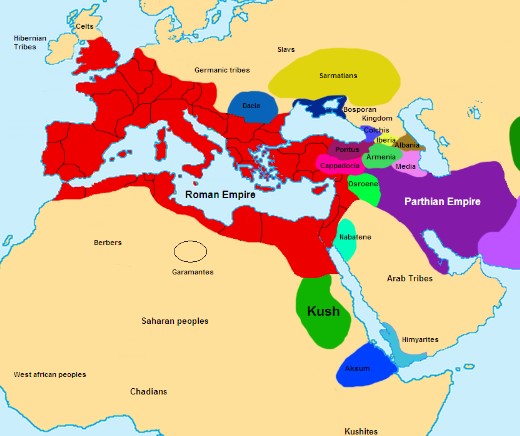
AD 50 – Eurasia
The year in the middle of Paul’s 2nd Missionary Journey.
Rome had conquered the Ptolemaic Kingdom of Egypt near Judea some time ago, but the Empire’s military defense of the Eastern front in Syria kept close eye on the Parthian Empire and frequently engaged in battle losing and retaking various land.
A Greek-ish in culture of the Eurasian world remained reticent of Roman Legions suppressing unwilling rulers in uncooperative localities.
Politically astute men like a Herod or Saul of Tarsus understood this ever-shifting landscape of living as part of the political leadership and military power of the Roman Empire.
Paul would have been attuned to recent changes in both Asia and Europe as the Apostle now travels toward a new destination with Silas and Timothy. They seem to be travelling intentionally and slowly (which we might easily miss in these few brief verses of Acts.
AD 43 – During those years after Paul had witnessed Jesus on the road to Damascus, just four years prior to his first missionary journey here and to Cypress, Rome had invaded Britannia in the West. Legions had also conquered Lycia on the SW coast near Asia Minor where previously they had sailed to and from Perga.
Lycia Source: Wikipedia
AD 46 – Just a year prior to Paul’s first missionary journey
After the death of the Thracian king Rhoemetalces III in 46 AD and an unsuccessful anti-Roman revolt, the kingdom was annexed as the Roman province of Thracia. The new province encompassed .. the north-eastern portion of the province of Macedonia as well as the islands of Thasos, Samothrace and Imbros in the Aegean Sea.
Source: Wikipedia
Acts of the Apostles 16:
Previously:
4 As they went on their way through the cities, they delivered to them for observance the decisions that had been reached by the apostles and elders who were in Jerusalem. 5 So the churches were strengthened in the faith, and they increased in numbers daily.
6 And they went through the region of Phrygia and Galatia, having been forbidden by the Holy Spirit to speak the word in Asia.
These apostles sent out from Antioch Syria have traveled about half-way on this 2800 mile [4500 km] journey into a Greek-ish Roman-ruled world. Their remaining journey in Euro-Asia will include many more important cities where they will preach the Gospel of Jesus Christ in the upcoming year.
7 And when they had come up to Mysia, they attempted to go into Bithynia, but the Spirit of Jesus did not allow them. 8 So, passing by Mysia, they went down to Troas.
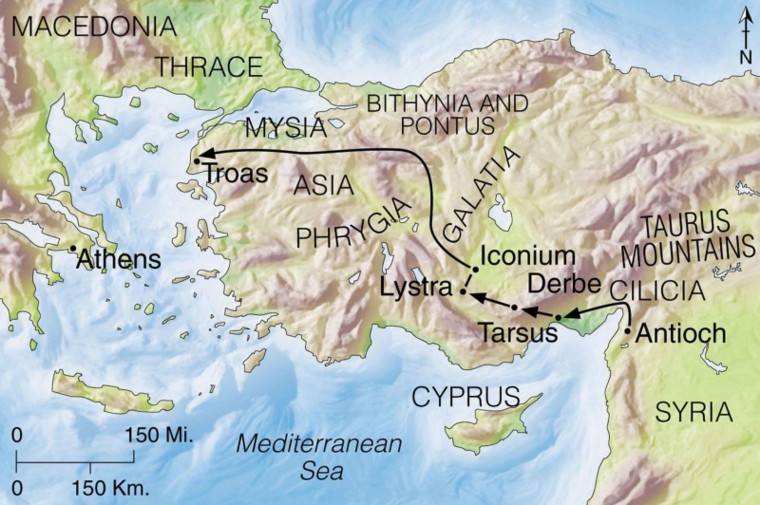
To be continued…
